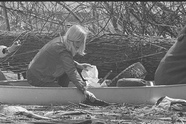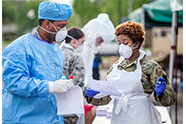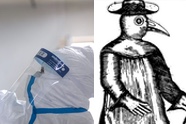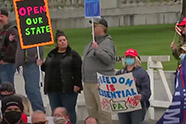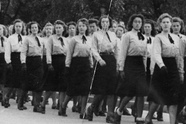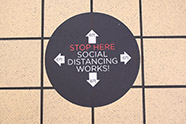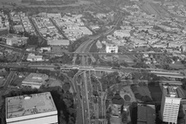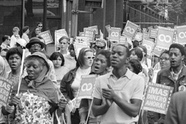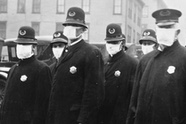The Roundup Top Ten for April 24, 2020
Earth Day 1970 Was More than a Protest. It Built a Movement.
by Adam Rome
How can environmentalists create space for people on the sidelines to ask what a changing climate means for their hopes and dreams? And how can they encourage everyone on the field to do more?
The Black Plague
by Keeanga-Yamahtta Taylor
Public officials lament the way that the coronavirus is engulfing black communities. The question is, what are they prepared to do about it?
Miracle ‘Coronavirus Cures’ Haven’t Changed in 700 Years
by Jennifer Wright
The many bizarre "cures" for the coronavirus circulating online are nothing new. Rather, they have a lineage that stretches back to the bubonic plague.
The Far Right Hates Liberals, Government and the Media — And Now, Quarantines
by Timothy J. Lombardo
Protests against social distancing measures are rooted in decades-old anger and mistrust.
Why Did Women Vote For Hitler? Long-Forgotten Essays Hold Some Answers
by Sarah R. Warren, Daniel Maier-Katkin, Nathan Stoltzfus
More than 30 essays on the subject “Why I became a Nazi” written by German women in 1934 have been lying fallow in the archives of the Hoover Institution in Palo Alto for decades.
Today's Biggest Act of Patriotic Love
by David M. Perry
Under quarantine, a majority of Americans are more united than ever, argues historian David M. Perry.
Christian Groups That Resist Public-Health Guidelines Are Forgetting a Key Part of the Religion's History
by Matthew Gabriele
Scholars have shown that a large part of Christianity’s attraction in the Roman world was that it cared for the welfare of the people who were suffering.
Justice In Movement
by Genevieve Carpio
History should challenge us to think about transportation not only in terms of moving people, but of distributing the costs and benefits of mobility equitably.
Inequality and the Coronavirus
by Liz Theoharis
Here’s the simple truth of twenty-first-century America: all of us live in a time and in an economic system that values our lives relative to our ability to produce profits for the rich or in the context of the wealth we possess.
A Brief Criminal History of the Mask
by Melissa Gira Grant
The New York City mask order, particularly without any subsequent plan to make masks accessible to the public, hands police another tool to regulate public space—and that is not the same thing as ensuring public safety.
